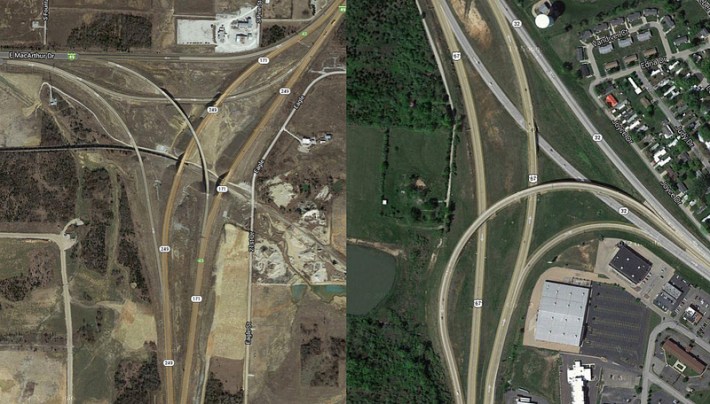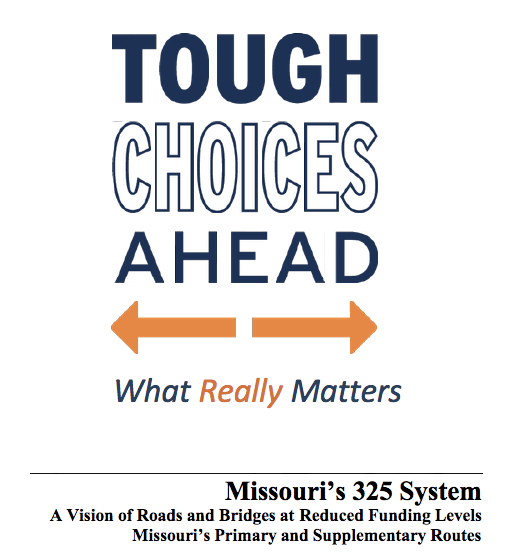
In August, Missouri voters roundly defeated a sales tax increase supported by road building interests that would have dramatically boosted funding for the state DOT. During the run-up to the election, state leaders laid it on thick in their appeal for more road money, arguing that the fallout would be disastrous for public safety if voters didn't approve the 0.75 percent sales tax hike.
But voters didn't bite on the business-as-usual proposal. And now, reports Richard Bose in a brilliant post at NextSTL, the state has unveiled its Plan B: a tighter budget that is packaged in language designed to scare residents into approving another funding source for the DOT.

Missouri officials call it the "325 Plan," because the state will only have $325 million to spend annually on transportation by 2017. Among the warnings: "Supplementary roads will become a patchwork of repairs. Heavy loads on Missouri bridges will be limited, and some bridges could be closed indefinitely." In light of the budget crunch, the state has said it will make "improvements" on only 8,000 of its 34,000 miles of roads. But the rest will still receive basic maintenance.
Bose says putting Missouri DOT on an austerity budget might be just what the doctor ordered. After all, over the last decade, the state binged on road spending, much of it backed by borrowing. And yet the state still has almost 500 bridges in poor or serious condition, and its economy is still performing worse than the nation as a whole. Perhaps giving the DOT more money to throw at highway construction isn't going to fix anything.
Back when money was flowing freely, many of the state-supported highway expansions were little more than jobs programs, Bose says. Now it's not clear that the state's economy can support infrastructure at the scale that was built. Missouri DOT isn't about to admit that's a possibility, though:
They fail to mention that 34,000 miles of roads might be too much for our population and economy to sustain. They fail to mention the luxurious features added like these flyovers near Farmington and in Jasper County [above]. Does the incremental increase in economic activity compared to an intersection come anywhere close to paying for them? Not even close. Their purpose was to provide jobs for the industry.
Furthermore, fewer road expansions will mean less sprawl, Bose says, which will help improve the financial productivity of existing developed areas and lessen the burden on future generations:
Without state subsidy we will have to get more out of those streets than we do now. Yes, that means more buildings taller than one story, less parking, slower design speeds, living closer to each other, more walking. We will have to increase the amount of economic activity per unit of infrastructure. We’ll be safer, wealthier, and healthier for it.
Voters sent a signal when they rejected the state's request to fund roads with a large increase in the regressive sales tax. If the state is serious about devoting more resources to transportation, writes Bose, it has to change the way the DOT does business:
MoDOT encourages us to take action and ask tough questions. Let’s ask why gas and diesel taxes are so low? Was limiting them to only go to roads and bridges in 2004 wise? Shouldn’t diesel taxes reflect the amount of damage done to roads by heavy loads? Why is fuel exempt from sales taxes? Why can’t counties and cities levy their own fuel taxes? Should we not bond again and go to pay-as-you-go? Why should urban areas subsidize low productivity projects in other areas of the state? Why does MoDOT gamble with tax dollars on low returning investments on the edges of towns and cities? Why should we approve more money when MoDOT projects have done so much damage to cities big and small?
Maybe Missourians' refusal to support the state's transportation funding plans will compel this old school agency to reform its ways.





